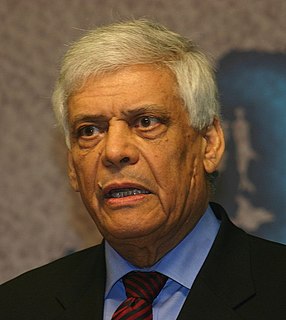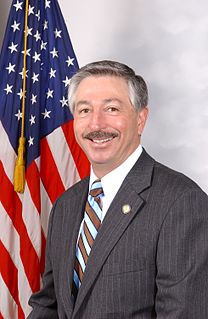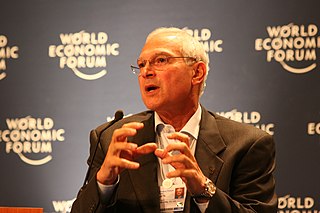A Quote by George P. Shultz
Strong growth means increased use of energy at a pace that can strain the capacity to supply what is needed at a reasonable price.
Related Quotes
Four things have almost invariably followed the imposition of controls to keep prices below the level they would reach under supply and demand in a free market: (1) increased use of the product or service whose price is controlled, (2) Reduced supply of the same product or service, (3) quality deterioration, (4) black markets.
The Federal Reserve's objectives of maximum employment and price stability do not, by themselves, ensure a strong pace of economic growth or an improvement in living standards. The most important factor determining living standards is productivity growth, defined as increases in how much can be produced in an hour of work.
We believe that part of the answer lies in pricing energy on the basis of its full costs to society. One reason we use energy so lavishly today is that the price of energy does not include all of the social costs of producing it. The costs incurred in protecting the environment and the health and safety of workers, for example, are part of the real costs of producing energy-but they are not now all included in the price of the product.
Nuclear power generation has been given a thrust by the use of uranium-based fuel which US is set to supply to India if the deal comes through. However, there would be a requirement for ten-fold increase in nuclear power generation even to attain a reasonable degree of energy self-sufficiency for our country.
The mental capacity of a person to make reasonable contracts, is the only criterion, by which to determine his legal capacity to make obligatory contracts. And his mental capacity to make reasonable contracts is certainly not to be determined by the fact that he is, or is not, twenty-one years of age.



































